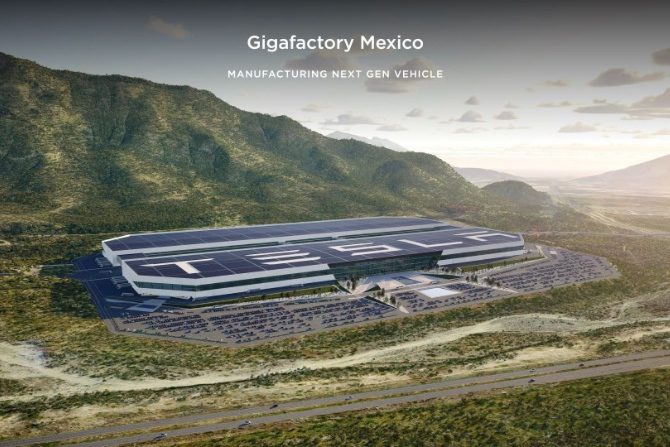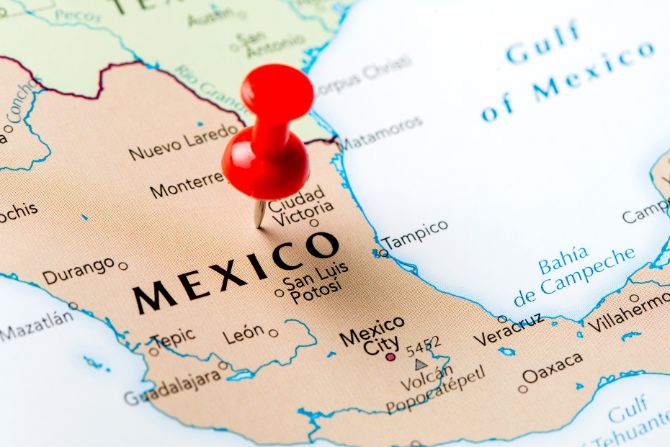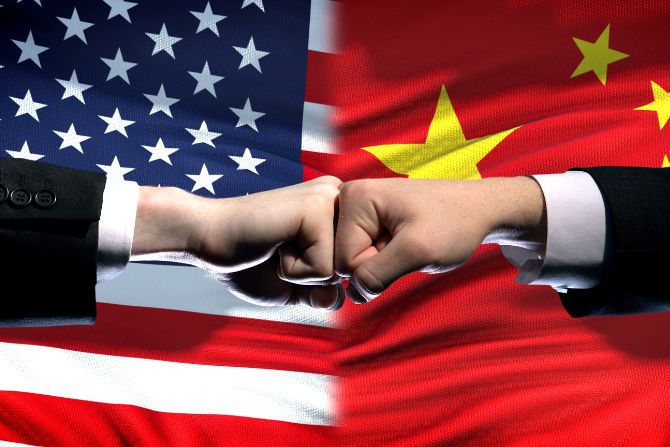
Manufacturing in Mexico has become a desirable choice for businesses seeking to optimize their supply chain and minimize labor expenses. As the global economic landscape shifts, businesses are exploring the benefits of nearshoring production to this strategic location.
In this blog post, we will explore the advantages of manufacturing in Mexico, such as its proximity to the US market, lower labor costs compared to other countries like China, and a well-trained workforce. We will also dicsuss the favorable trade agreements with Mexico that facilitate digital trade provisions while reducing corruption risks.
You will learn about success stories from industries shifting production to Mexico – including the recent Tesla’s Gigafactory example – as well as geopolitical factors influencing nearshoring decisions. Finally, we will explore Mexican business culture characteristics and opportunities for finding reliable suppliers and negotiating favorable agreements.
Table of Contents:
- Nearshoring Advantages in Mexico
- Benefit #1: Proximity to the US market
- Lower labor costs compared to the US and China
- Well-trained workforce
- Favorable Trade Agreements with Mexico
- Challenges of Manufacturing in Mexico
- Success Stories of Industries Shifting Production to Mexico
- Diplomatic Tensions between the US and China
- Business Culture and Opportunities in Mexico
- Conclusion
Nearshoring Advantages in Mexico
Mexico has emerged as a popular nearshoring destination for US companies, particularly in the manufacturing sector. With Tesla’s recent announcement of opening a new gigafactory near Monterrey, Nuevo León, Mexico is gaining more attention. The country’s strategic location offers numerous advantages over other countries such as China.
Benefit #1: Proximity to the US market
The close geographical proximity between Mexico and the USA provides significant benefits for American companies looking to manufacture in Mexico. Reduced shipping times and lower transportation costs allow businesses to respond more quickly to changes in demand, while maintaining competitive pricing on their products. Additionally, the close proximity enables easier communication and collaboration with suppliers or partners operating within both countries.

Mexico’s proximity to the US market has made it a very attractive destination for US companies looking to expand their operations.
Lower labor costs compared to the US and China
Salaries are an essential factor when considering moving production facilities abroad. In comparison with both China and the USA, Mexico offers significantly lower wages, allowing foreign companies to save money without sacrificing quality or efficiency. With salaries being 50% lower than those in China, manufacturing in Mexico is becoming an increasingly attractive option for businesses. This cost advantage allows companies to maintain competitive pricing, while still providing high-quality products.
- Average hourly wage:
- Mexico: $3-4 USD per hour (depending on industry)
- China: $6-7 USD per hour (depending on industry)
- USA: $23-24 USD per hour (depending on industry)
Looking to enhance your business operations in Mexico? Why not register to our Vendor Managed Inventory (VMI) program today?
Explore the Vendor Managed Inventory (VMI) services that we offer at The ILS Company. Designed to optimize supply chain operations for businesses in Mexico, the main the advantages of VMI are: enhancing supplier collaboration, reducing costs, and improving overall efficiency in the manufacturing sector. Ideal for companies seeking streamlined operations in Mexico’s dynamic market. If that’s you, apply now!
Well-trained workforce
Mexico’s well-trained and skilled workforce is another significant advantage for companies considering to move their manufacturing operations. Mexico has a concentrated emphasis on education, particularly in engineering and technology disciplines. According to World Economic Forum data, Mexico produces over 100,000 engineering graduates each year, providing an ample supply of talent for businesses operating within the manufacturing sector.
The Mexican government has made significant investments in its education system, particularly in areas related to science, technology, engineering, and mathematics. As a result, many universities offer programs specifically tailored towards meeting the requirements of modern industries. For example, institutions like Tecnológico de Monterrey have established strong ties with multinational companies operating in Mexico to ensure their curricula align with current market needs.
- Tecnológico de Monterrey: Ranked among Latin America’s top universities for Engineering & Technology courses.
- Instituto Politécnico Nacional (IPN): One of Mexico’s leading public research institutions specializing in STEM fields.
- Universidad Nacional Autónoma de Mexico (UNAM): A prestigious university offering diverse degree programs across multiple disciplines, including engineering and applied sciences.

Mexico’s well-trained and skilled workforce is another significant advantage for companies considering to move their manufacturing operations.
Favorable Trade Agreements with Mexico
One of the key factors contributing to the growing interest in manufacturing in Mexico is the implementation of favorable trade agreements, such as the United States-Mexico-Canada Agreement (USMCA). This agreement replaced NAFTA and modernized trade relations between these countries. It addresses various aspects that benefit businesses operating within North America, including digital trade provisions, reduced corruption risks, and standardized regulations.
To promote transparency and good governance practices, USMCA has implemented measures to help combat corruption risks in international business dealings. USMCA has mandated the enactment of anti-corruption legislation in each nation, as well as encouraging collaboration between law enforcement agencies when probing cases involving bribery or other corrupt activities.
✐Key Takeaway:
The implementation of favorable trade agreements, such as the USMCA, has made manufacturing in Mexico more attractive. The USMCA reduces corruption risks and standardizes regulations across North America.
Challenges of Manufacturing in Mexico
Companies must address several challenges when considering nearshoring production in Mexico. Navigating through regulatory systems and infrastructure issues requires finding reliable partners who can help build strong relationships with local suppliers, while ensuring compliance with Mexican laws.
Regulatory Systems Navigation
Mexico has a complex regulatory environment that businesses need to navigate carefully. Understanding the legal requirements for setting up manufacturing operations, securing permits, and complying with labor regulations is essential for success. Working with experienced local experts can be invaluable in overcoming these obstacles and ensuring smooth operations.
Infrastructure Concerns
The quality of infrastructure varies significantly across different regions in Mexico. While some areas boast modern facilities and well-maintained roads, others may have inadequate transportation networks or unreliable utilities supply. Companies should conduct thorough research on their chosen location’s infrastructure capabilities before making any commitments to avoid potential disruptions to their supply chain management process.
- Roadways: Ensuring access to efficient road networks is crucial for transporting goods between the USA and Mexico.
- Energy Supply: Reliable electricity sources are necessary for running manufacturing plants without interruptions.
- Tech Infrastructure: Adequate internet connectivity plays an important role in managing cross-border communications effectively.
- Security: Robust security measures are crucial for safe and stable cross-border trade between the USA and Mexico.
Building Relationships with Local Suppliers
Fostering strong relationships with local suppliers is critical when nearshoring production processes to Mexico. Establishing trust-based partnerships helps ensure timely delivery of raw materials, components, or services needed by your business at competitive prices. Attending industry events and joining local business associations can be useful for networking with potential suppliers and learning about their capabilities.
In addition to these challenges, companies should also consider cultural differences when operating in Mexico. Understanding the nuances of Mexican business culture is essential for building successful partnerships with local stakeholders, and ensuring a smooth transition into the country’s manufacturing sector.
Manufacturing in Mexico can be a complex and challenging process, but with the right guidance from experienced professionals like ILS Company, businesses can take advantage of this region’s potential for growth. Success stories, such as Tesla’s Gigafactory, demonstrate how industries have shifted production to Mexico and reaped great rewards through localized supply chains.
⚠︎ Important Disclaimer:
We do not create a company or manufacture something for you in Mexico. We assume that you already have a company and a product that you want to move between Mexico and the USA. We only take care of storing your merchandise in one of our warehouse centers and all transportation, whether by land, air or sea.
Success Stories of Industries Shifting Production to Mexico
Mexico has become a desirable spot for businesses looking to move their production away from China or other areas, mostly due to its competitive wages and competent labor force. The auto sector has seen a surge in development recently.
Tesla’s Gigafactory Example
Tesla’s decision to build a new gigafactory near Monterrey, Nuevo León, highlights the potential benefits of manufacturing in Mexico. Elon Musk announced that the global leading manufacturer of electric vehicles, will be investing over USD $5 billion and creating at least 5,000 new jobs, in what will be the world’s largest Gigafactory. Since 1999, the state of Nuevo León has been the largest recipient of Foreign Direct Investment (FDI) in Mexico, with more than USD $64 billion.

Tesla’s new gigafactory, located near Monterrey, is a testament to the strength and solidity of the automotive industry in Mexico.
Automotive Industry Growth
Mexico’s automotive sector has seen significant growth in recent years, resulting in motor vehicles and vehicle parts becoming one of the nation’s most important exports. Motor vehicles and vehicle parts are among the country’s largest exports, with many manufacturers using components sourced from various suppliers within close proximity. This localization allows companies not only cost savings, but also increased efficiency throughout their entire operation process chain.
- Ford: Ford shifted production of its heavy-duty trucks from Ohio back into Mexico after investing $1 billion in two plants located there.
- Audi: Audi opened a plant in San José Chiapa, Puebla, which manufactures SUVs for global markets, including North America and Europe.
- BMW: BMW built a new plant in San Luis Potosí, Mexico to produce its 3 Series sedans for the North American market.
✐ Key Takeaway:
Mexico has become an attractive destination for industries looking to shift their production, due to its low wages and skilled workforce. The automotive industry is a prime example of this, with companies such as Ford, Audi, and BMW investing in plants there.
Diplomatic Tensions between the US and China
The current geopolitical landscape plays a significant role in driving businesses towards Mexican shores instead of Chinese ones. Less cordial diplomatic relations between Washington D.C. and Beijing, and potential conflict with Taiwan may pose risks associated with operating inside Asia’s biggest economy, prompting firms to consider alternative options closer to home.
Over the past few years, trade disputes and diplomatic tensions have been escalating between the US and China. Tariffs imposed by both countries on each other’s goods have led many companies to reconsider their reliance on Chinese manufacturing. As a result, some businesses are exploring nearshoring opportunities in Mexico as an alternative option for production.

The diplomatic tensions between the US and China have made Mexico an excellent option for nearshoring.
✐ Key Takeaway:
Geopolitical tensions between the US and China, as well as potential conflicts in Asia, are driving businesses to consider nearshoring production to Mexico. With its proximity to the US, and favorable trade agreements like the USMCA, Mexico is becoming an increasingly attractive option for companies looking to diversify their operations while minimizing risk.
Business Culture and Opportunities in Mexico
While more risk-averse and less open to newcomers than China, Mexico’s business culture provides ample opportunities for companies that can find reliable suppliers and negotiate favorable agreements. This makes it an ideal location for businesses looking to diversify their supply chains, while mitigating potential risks associated with relying solely on Chinese production.
To establish successful operations in Mexico, it is essential to identify trustworthy local suppliers who understand the unique challenges of doing business there. One way to do this is by attending industry-specific trade shows or joining professional associations such as the American Chamber of Commerce (AmCham) Mexico, which offers networking opportunities with established businesses operating within the country.
Conclusion
Manufacturing in Mexico offers various benefits, including proximity to the US market, reduced labor expenses, and a competent staff. However, businesses must also navigate regulatory systems and infrastructure concerns while building relationships with local suppliers.
Despite potential difficulties, the successes of entities such as Tesla’s Gigafactory, and an expanding auto sector suggest that manufacturing in Mexico can bring about greater productivity through localized supply networks. With geopolitical factors influencing nearshoring decisions and opportunities for finding reliable suppliers and negotiating favorable agreements, it is clear that Mexico should be considered as an alternative option for foreign companies looking to transport merchandise from the United States to Mexico, or vice versa.


